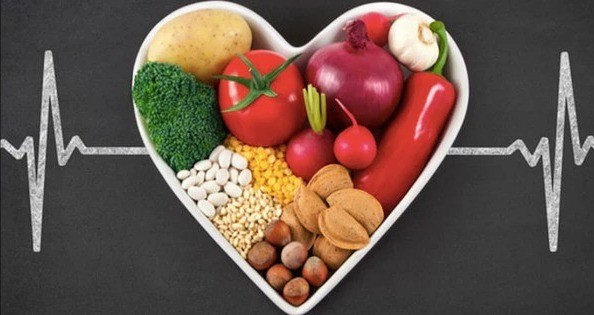
Certain eating habits can significantly increase the risk of heart disease over time.
Choosing unhealthy diets, such as consuming excessive amounts of saturated fat, trans fat, added sugar, and sodium, can lead to high blood pressure, high cholesterol levels, obesity, and insulin resistance, putting stress on cardiovascular health. Regularly skipping meals or overeating also risks disrupting metabolism and hormonal balance.
These habits often develop slowly and go unnoticed until they contribute to serious heart problems. Below are some eating habits that can increase the risk of heart disease. Once you understand them, you should proactively abandon these habits and adopt a healthy lifestyle to protect your heart and enjoy a longer, better quality of life.
1. Consuming too much processed food.
Regular consumption of packaged snacks, instant noodles, pre-prepared meals, and processed meats can be dangerous for cardiovascular and overall health. These foods often contain high levels of trans fats, preservatives, and sodium, which raise cholesterol and blood pressure levels—major risk factors for heart disease.
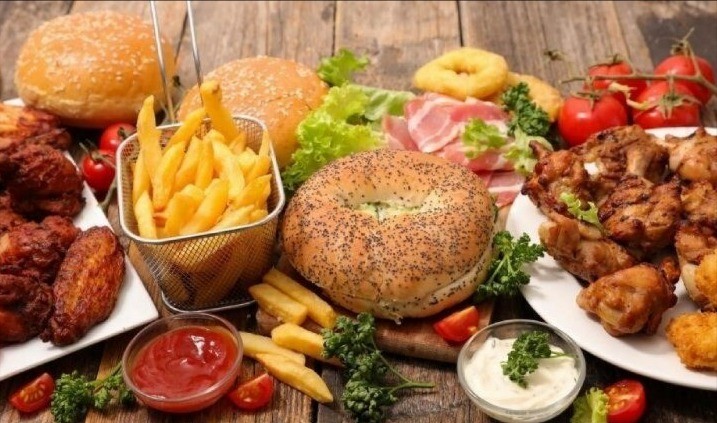
2. Consuming too much sugar
Regular consumption of sweets, desserts, candy, and cereals increases blood sugar and insulin levels, promotes fat storage, and causes inflammation. Over time, this can lead to insulin resistance, diabetes, and heart disease.
3. Consuming too much salt causes high blood pressure.
Adding too much salt to food or eating salty snacks raises blood pressure, damages blood vessels, and contributes to various cardiovascular diseases. Processed foods and restaurant meals are often potential high sources of sodium. Even slightly less sodium in the diet can improve cardiovascular health and blood pressure.
According to Associate Professor, Doctor Ta Manh Cuong, Vietnam National Heart Institute, Bach Mai Hospital, modifiable risk factors for cardiovascular disease include unhealthy eating habits (excessive salt intake, high saturated and trans fats, low fruit and vegetable consumption), lack of exercise, smoking and alcohol consumption, and being overweight or obese.
4. Regularly skipping breakfast
Skipping the first meal of the day can lead to unhealthy snacking, poor metabolism, and increased cortisol levels. In the long term, this habit increases the risk of high bad cholesterol, high blood pressure, and obesity—all of which are linked to heart disease.
5. Eating late at night increases the risk of cardiovascular disease.
Eating late at night, especially large meals, puts extra strain on the digestive system and disrupts blood sugar control and fat metabolism. Regularly eating at night can also affect sleep, further impacting cardiovascular health.
6. Low fiber intake
Soluble fiber helps remove excess cholesterol from the blood, supporting heart health. A diet low in fiber, especially from fruits, vegetables, and whole grains, can lead to poor digestion and high cholesterol.
7. Eating too much red meat and processed meat.
Regular consumption of red meats such as beef and lamb, and processed meats like sausages and bacon, is associated with higher levels of saturated fat and an increased risk of heart blockage and atherosclerosis. Several observational studies have shown that red meat is associated with a higher risk of cardiovascular disease and diabetes.
Dr. Frank Hu, Head of the Department of Nutrition at Harvard University, advises limiting red meat consumption to about 2-3 servings per week, especially when cooked at high temperatures.
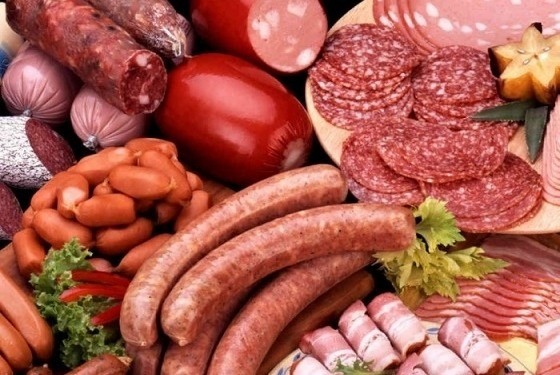
8. Excessive consumption of fried foods and fast food.
Regularly eating fried foods like french fries, fried chicken, and fast food hamburgers leads to the absorption of unhealthy fats and calories, resulting in weight gain, plaque buildup in arteries, and negative effects on the heart.
9. Drinking too many sugary drinks.
Soft drinks, energy drinks, and sugary juices contain high amounts of added sugar. They raise triglyceride levels and lower HDL (good cholesterol), increasing the risk of heart attack and stroke.
10. Irregular eating habits or overeating.
Irregular eating habits, such as prolonged fasting followed by overeating, can stress the heart by causing spikes in blood sugar and blood pressure. This erratic metabolic stress is detrimental to heart rhythm and function.
Paying attention to what you eat, how you eat it, and when you eat it plays a crucial role in maintaining a healthy heart and preventing long-term complications.
Source: https://baolaocai.vn/10-thoi-quen-an-uong-co-the-lam-tang-nguy-co-mac-benh-tim-post649075.html








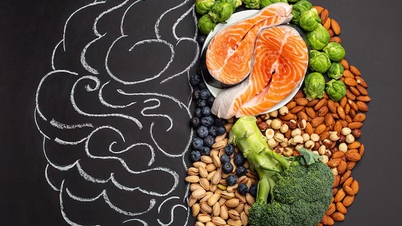







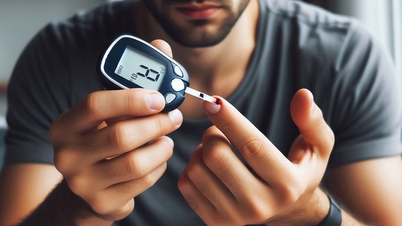



























































































Comment (0)